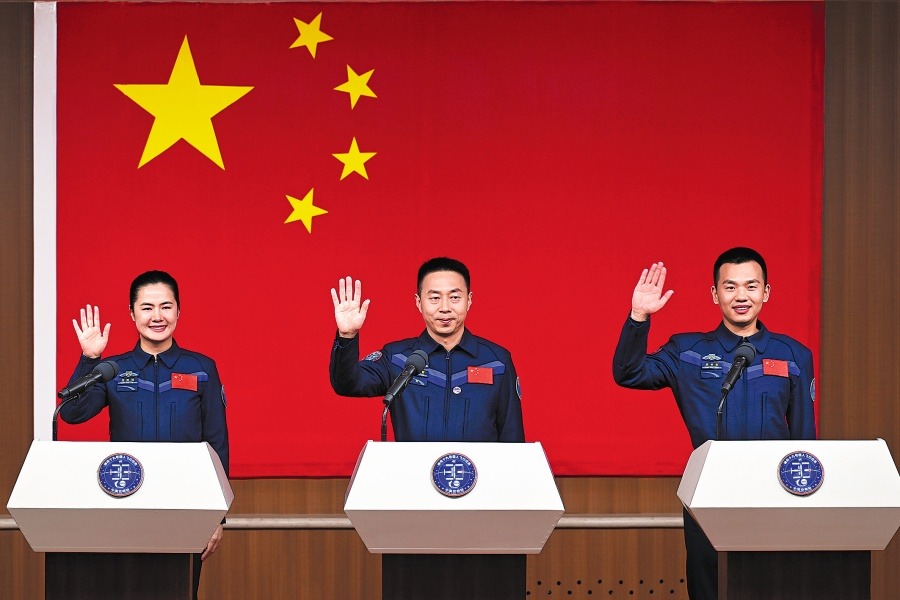Village Super League looks to net profits


Economic boost
The Village Super League, which has become a magnet for tourists across China, has driven local economic development in tourism, catering, accommodation, the cultural and creative sector, and agricultural products.
"This is a soccer carnival deeply rooted in the soil!" Han Qiaosheng, a famous TV commentator, said on June 3 during on-site commentary of a match, which attracted nearly 50,000 spectators, some of whom traveled over 1,000 kilometers to witness the excitement.
Taijiang and Rongjiang are located in remote mountain areas and both previously suffered from a lack of roads and limited flow of information.
Today, improved transportation infrastructure enables visitors easy access from the provincial capital Guiyang as well as Guilin in the Guangxi Zhuang autonomous region. The easy access has been dubbed a "one-hour economic circle".
The counties are also within a "four-hour economic circle" of cities in the Pearl River Delta, such as Guangzhou and Shenzhen in Guangdong province.
The convenient transportation network means tens of thousands of visitors can travel to Rongjiang in a short time.
The matches are exciting, with enthusiastic villagers and visitors joining together to create an electric atmosphere. Outside the stadium, hundreds of stalls operate until late at night, offering local cuisine to visitors.
"I hope that more and more tourists will come to Rongjiang to watch the matches, enjoy the folk customs and local cuisine, and have fun," said Xiong Zhuqing, a melon grower who is also a cheer leader.
As Xiong supports her team, her voice becomes hoarse and the basin she's been banging on becomes peppered with several big dents. "But I feel happy," said Xiong, adding the economic benefits of the event are substantial.
She says she has sold over 10,000 kilograms of watermelons since the start of the tournament. "Things that used to take a few days to sell are now being sold in a day. My watermelons have long sold out. Now I sell those grown by other villagers," she said.
A video clip of Xiong wearing a purple costume while selling watermelons to fans at the stadium went viral. She was called "Rongjiang watermelon sister" by netizens. Many fans seek her out to buy watermelons to take home.
The county has seen a surge in tourist numbers.
In May alone, it recorded more than 1 million visits, a 39.7 percent year-on-year increase. Tourism revenue reached 1.24 billion yuan, a 52.08 percent year-on-year increase, according to the local government.
Rongjiang, which was one of the last counties in China to lift itself out of poverty, is now a key focus for rural vitalization. It leveraged the tournament to boost sales of its agricultural products and develop its tourism and service sectors.
As of June 27, a total of 654 new businesses were established including 91 in the catering sector, 188 in retail, and 195 in agriculture and food processing, the local government said.
To take full advantage of the tournament's success, Rongjiang has established a tourism development company named after the Village Super League, which is fully owned by a local state enterprise.
The enterprise has applied for the registration of multiple trademarks related to "Village Super" and "cunchao".
Guizhou's administration for market regulation said it has issued a work plan for the cultivation of the brand and intellectual property right protection of "Village BA" and "Village Super".
By combining tourism with sports, Rongjiang has found an innovative and meaningful way to promote rural vitalization and stimulate rural economic growth.
"Here, I can see the happy emergence of modern Chinese villages," several netizens have commented.
Contact the writers at [email protected]
























